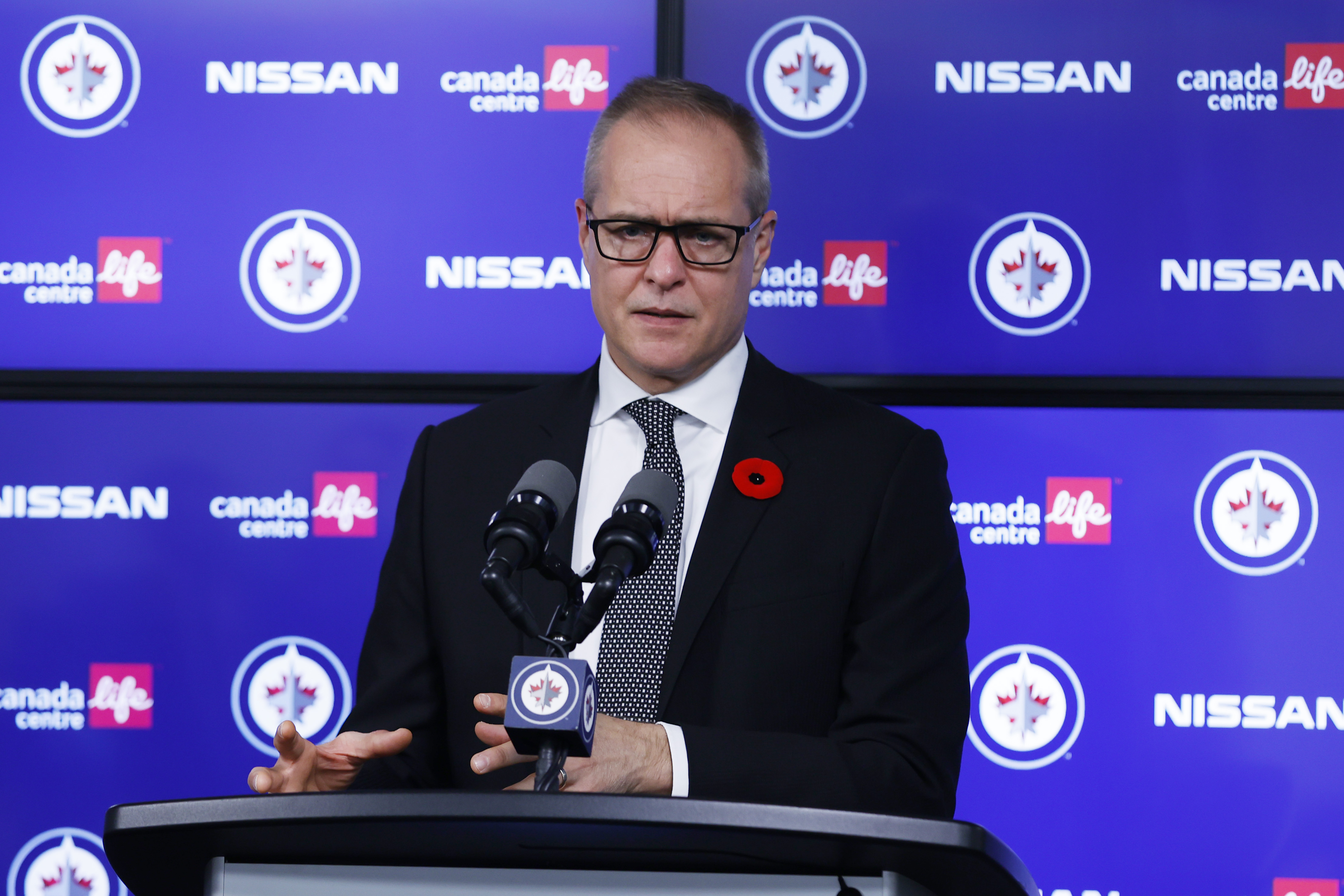
What's Next for Paul Maurice?
Paul Maurice resigned as coach of the Winnipeg Jets on Friday morning. What's next for him?
 What's Next for Paul Maurice?
What's Next for Paul Maurice?If you’ve ever been fortunate enough to talk hockey with Paul Maurice, you understand why he’s had such a long tenure as a head coach in the NHL.
I was lucky to be covering the American League’s Toronto Marlies when he coached them in the 2005-06 AHL campaign, and he was the same considerate, eloquent guy you see today. It didn’t matter that there were only one or two cameras and three or four reporters at the AHL level. He was all about the challenge. It was the right fit for him at the time, and he was thrilled to be a leader in an Original Six market.
Maurice shocked the hockey world on Friday when he announced that he was stepping down as head coach of the Winnipeg Jets (with assistant coach Dave Lowry taking over in an interim role.)
The Jets have been meandering through 28 regular-season games this year and currently sit in fifth place in the Central Division, but there was no sense Maurice would take a drastic step, especially after Jets GM Kevin Cheveldayoff signed Maurice to a contract extension in 2020.
Maurice has coached 1,684 NHL games. He’s seen it all, good and bad. He had a talented Jets lineup to work with. Ultimately, he couldn’t get the Jets to succeed in the Stanley Cup playoffs. And he’s sufficiently self-aware to know when he’s no longer the right fit.
You don’t find many coaches, if any, who are prepared to walk away from one of only 32 jobs like the one Maurice just left. But he sensed it was time, after eight-and-a-half years as Jets coach, to step aside and see if someone else can serve as a jumper cable to get the team to evolve in a progressive way.
That takes guts.
Maurice is probably going to wind up working as a TV analyst for the next year or two, and we’re all going to benefit from his insights. But at age 54, he’s still a young guy in the coaching business.
There should be little doubt Maurice will get back into the NHL. The only real question is when, and where. And soon enough, we’ll find out if Maurice was right in making way for a new voice in Winnipeg’s dressing room.
After coaching NHL teams in two Canadian markets, Maurice is ready for anything. I think the competitive fire that burns in him has dimmed a little. But with some space and personal privacy, that fire will build up again. The NHL coaching business is unpredictable, and you never know when some antsy team owner looks at Maurice’s record of longevity and sees in him the team’s next head coach.
It almost assuredly is going to happen.
Like any NHL coach who has a lot of experience, Maurice has his detractors. But now we get to see whether he was the problem in Winnipeg, or whether the roster Cheveldayoff has assembled is the issue.
For now, let’s allow Maurice some time out from under the magnifying glass. He’s earned a breather. The high-stakes life of anyone working in the NHL – especially, in the current COVID-19 pandemic bubble – has to take a huge toll. Maybe Maurice’s exit is best explained by noting he no longer can be at his best in Winnipeg’s pressure-cooker environment. There’s no shame in that. Nearly nine years in a Canadian market is an achievement in and of itself.
Just as NHL players need to look out for themselves and their family in this global virus nightmare, so too do NHL coaches. We should never allow our passion for the game to overshadow the humanity of those who play (and coach) it best. If Maurice thinks it’s time to go, regardless of the reason, he’s probably right. But he’ll be back. He’s a hockey lifer. Those people only go away for a short stretch.
Think of what’s taken place in less than half a season: The Vancouver Canucks and Montreal Canadiens cleaned house. The Florida Panthers and Chicago Blackhawks found management members embroiled in an abuse scandal, and they changed head coaches as well. The churn-and-burn of the coaching profession only seems to get faster.
How many coaches do you know who are working under contracts of more than two seasons? Let me answer that for you: very few. NHL GMs have realized how easily things can go off the rails, and they’re wary of signing coaches to long-term deals. No team owner wants to pay someone not to coach after a firing. That’s not likely to change. Two-year contracts are about as good as it gets – unless there’s some jacked-up owner who wants to make a big splash.
That’s where I see Maurice coming back – not as part of a rebuild, but as someone hired to push a team through four playoff rounds. It’s a measure of his impact that he has coached nearly 24 years of NHL hockey.
Owners trust him. Players play hard for him.
Now it’s all about finding the right fit again.